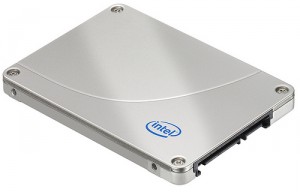One of the biggest surprises experienced by many laptop users is an SSD failure. It’s surprising for many people because of a couple of important things. First of all, people assume that because an SSD or solid state hard drive does not have as many moving parts as a regular hard drive, it naturally is going to be failure proof.
Most users just assume that they will never really have to consider something like SSD data recovery, because of the fact that these drives are typically very robust in nature. After all, they are based on a similar technology to flash drives, and everyone knows that those things can take a licking and keep on ticking.
Can SSD Drives Fail?
In a word, yes. Even though SSD hard drives are not subject to the same kind of failures as regular spindle and platter hard drives, (drives which by the way still provide the data storage on about 95% of our computer systems), they still do experience what many in the industry call “fade”. SSD drives do not use a platter to store data, but they do use electronic circuits – man-made electronic circuits – and if there is something we should all understand it is that a man-made product is rarely indestructible.
SSD: Unproven Long Term
Another key reason for many SSD failures is that the technology just simply isn’t proven yet. Although SSD hard drive use continues to grow, especially in portable solutions such as laptops and tablets, we do have to remember that the SSD platform are not incredibly well tested. While we can say with assurance that a regular spindle and platter hard drive can last anywhere from 5 to 15 years with regular use, we cannot say the same thing about SSD hard drives. Basically, they are unproven.
So although potentially less moving parts means that there would be less failure points in an SSD drive, the same factors for hard drive failure are still at play. Obviously, heat continues to be one of key killers of almost all hard drives.
One of the most important things to remember about flash drives versus SSD drives is that flash drives are typically used to store a single file or two. So, what people will do is use them to transfer files between computers, as an example.
An SSD drive, meanwhile, will likely be used to run a computer and store not only files, but an operating system. Obviously, the difference between the amount of use that an SSD drive in a computer gets as opposed to that of a USB flash key is immense. So although they are based on similar technologies, you do have to remember that an SSD hard drive is not failure proof specifically because of its incredible amount of daily use.
And naturally, although SSD hard drive manufacturers do know that there drives are highly functional in the short term, there are still a lot of question marks about the long-term.
How To Recover Your SSD Drive
Although we may be a little bit biased, we are quite pleased with the fact that SSD drives are almost completely unrepairable by do-it-yourselfers. This is key, because of course there are a lot of videos on the Internet that claim that you can repair your regular spindle and platter hard drive, when in fact attempting to open up such a hard drive is an incredibly dangerous thing.
We are unlikely to be seen very many repair your own SSD drive videos anytime soon, because the individual parts in an SSD drive are just simply not as available to the do-it-yourself market. As a result, the idea that somebody can recover their own data from a failed SSD drive without proper proprietary data recovery tools and a clean room is all but ridiculous.
And although it is good for our business, this is not the reason why we are happy that it is almost impossible to recover your own data from a SSD drive. Instead, it is because so much of the unrecoverable data we come across on a day-to-day basis is because people attempted to do their own hard drive repairs without the proper equipment and environment, not to mention knowledge.
If you value your data, remember that it is always better to contact a professional first, and consider putting the tools away.

Hello, just wanted to mention, I loved this blog post.
It was funny. Keep on posting!
I have realized some new points from your website about computer systems. Another thing I have always thought is that computers have become a product that each house must have for several reasons. They provide convenient ways to organize the home, pay bills, go shopping, study, hear music and in many cases watch television shows. An innovative way to complete all of these tasks is with a laptop computer. These computer systems are mobile, small, powerful and mobile.
I must thank you for the efforts you have put in penning this blog.
I’m hoping to check out the same high-grade content from you later on as well. In fact, your creative writing abilities has inspired me to get my own, personal website now 😉
You can definitely see your enthusiasm in the work you write.